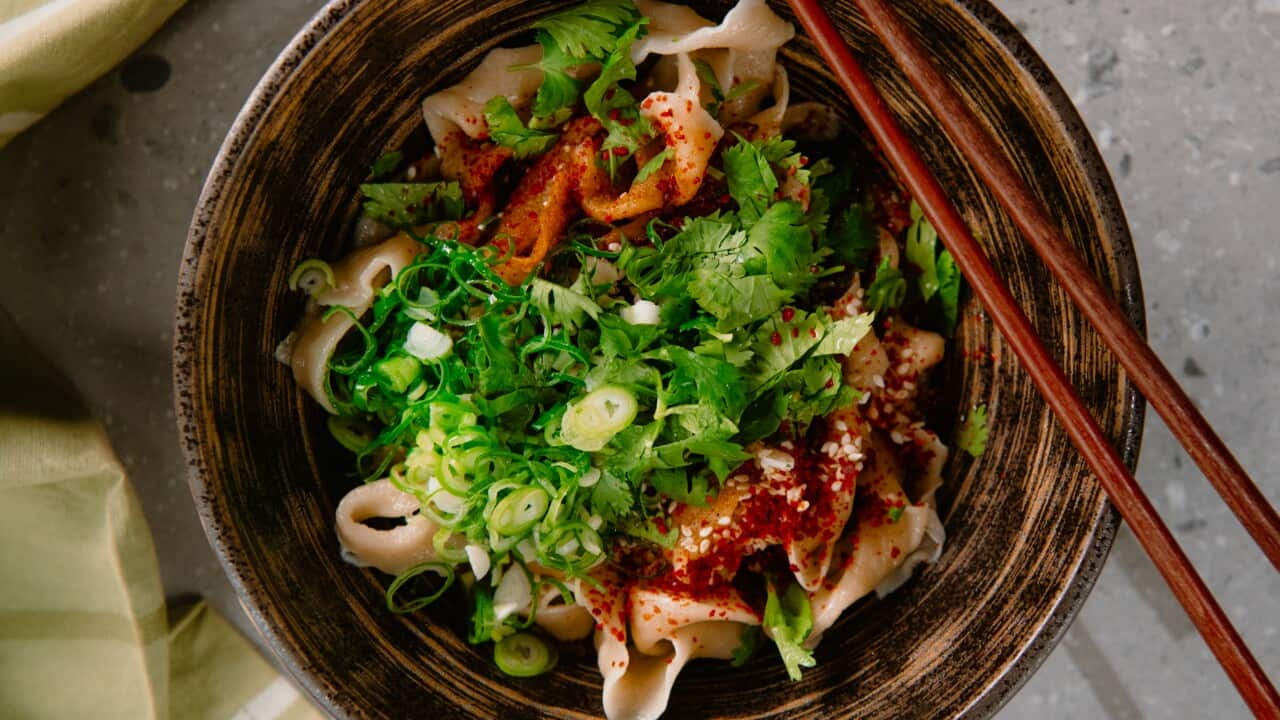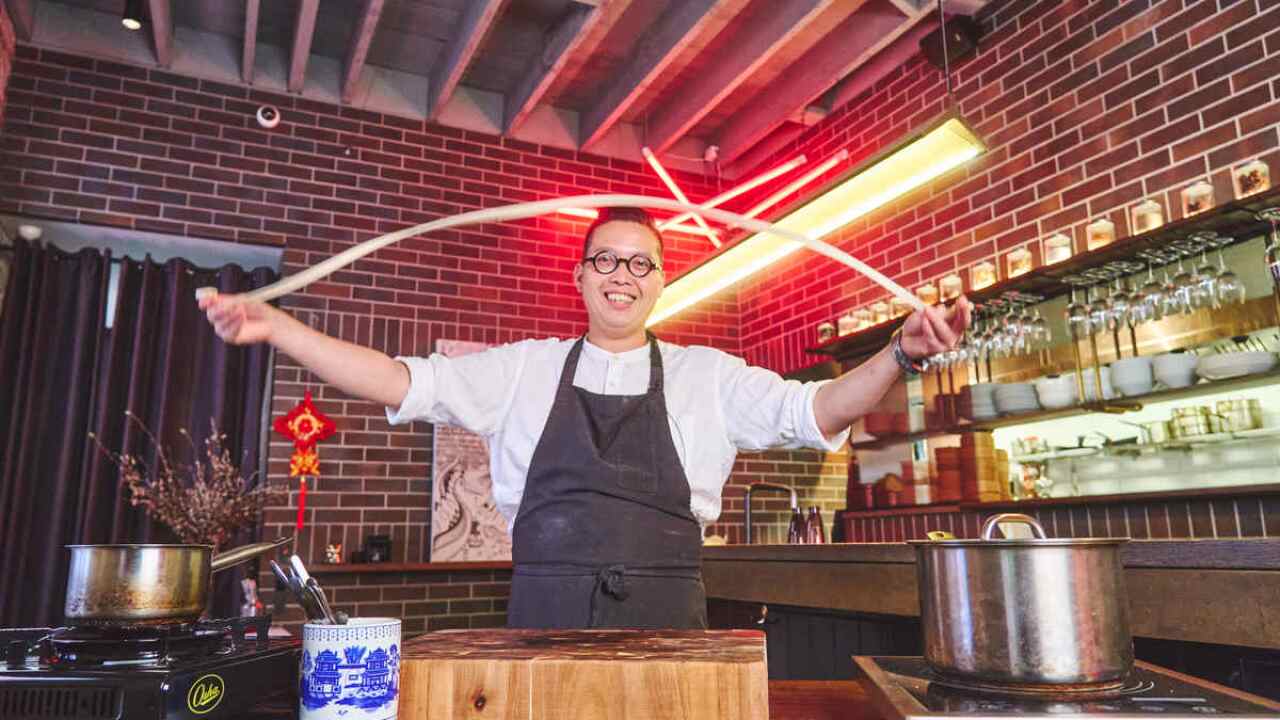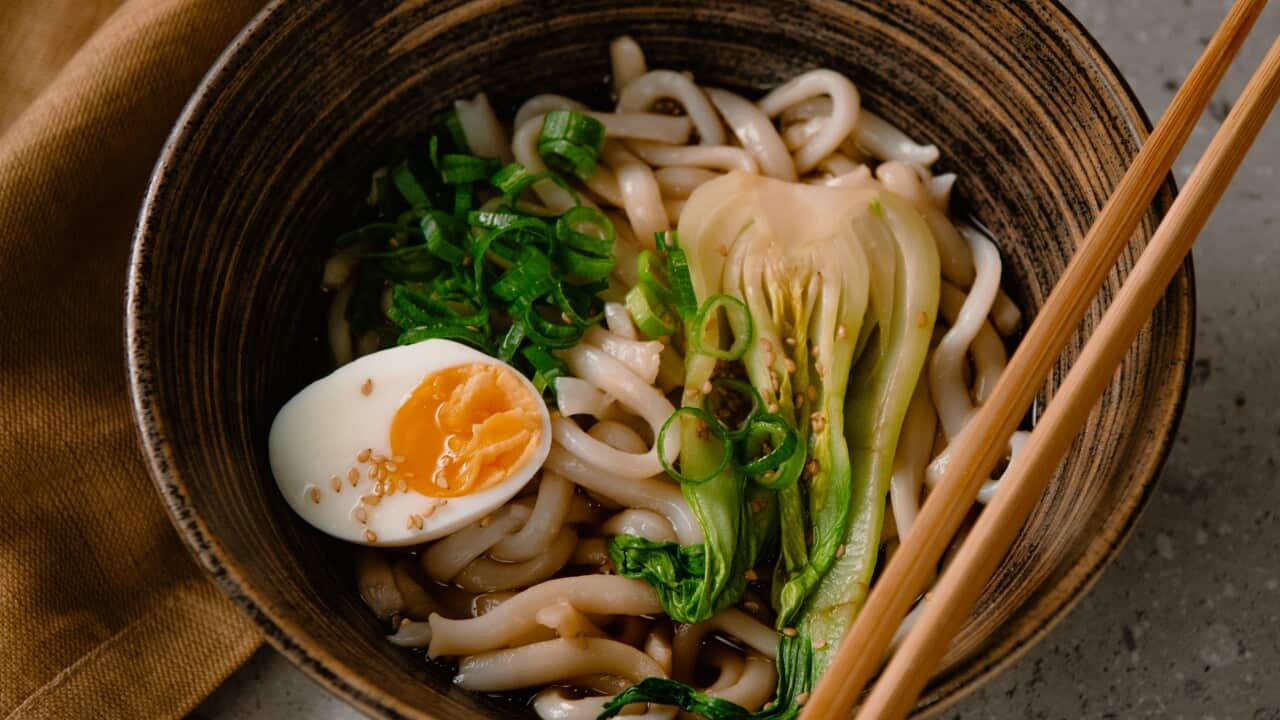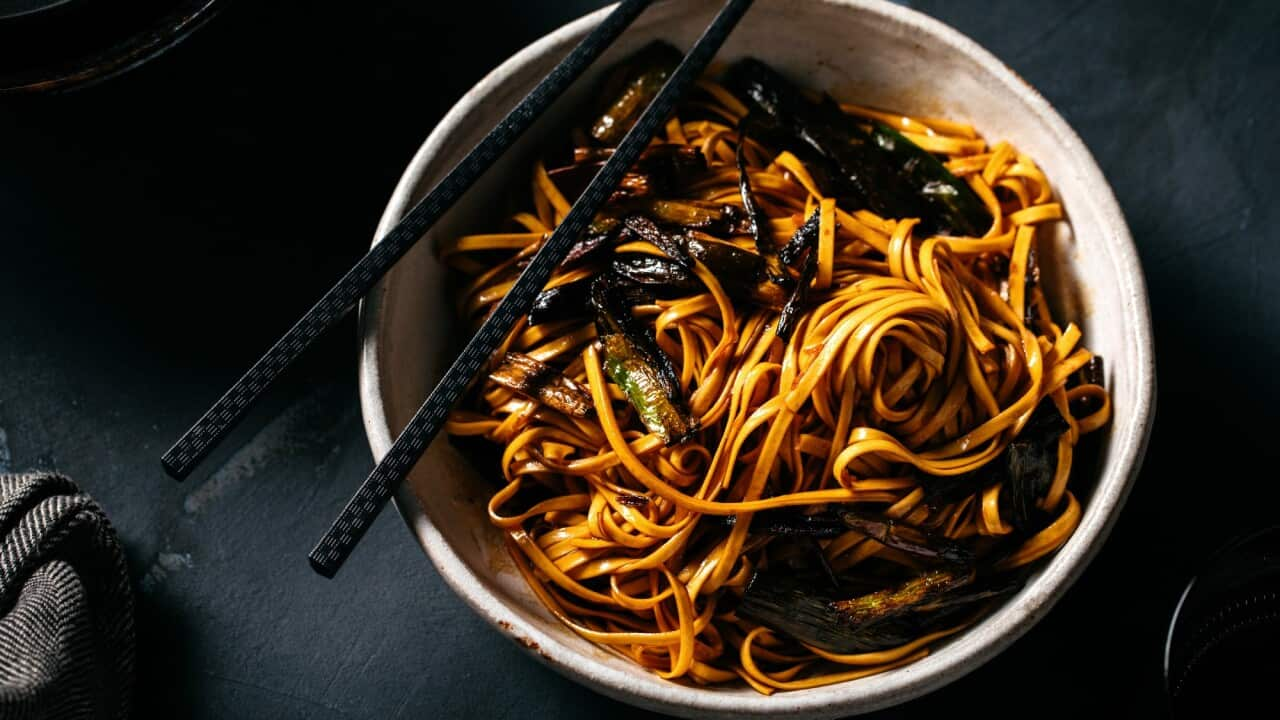--- Watch The Cook Up with Adam Liaw weeknights on SBS Food (Ch.33) at 7.00pm. Stream all episodes anytime at ---
When Junda Khoo, owner of , says he loves noodles, he really means he eternally ‘loves’ noodles.
“I must have noodles almost everyday,” the Malaysian-born chef tells SBS. “When I die, I would love for my children to think about me every time they eat noodles and say ‘this one’s for you dad’.”
Khoo’s noodle obsession is both a cultural inheritance and family tradition. Growing up in Malaysia, he ate noodle dishes daily for breakfast. From char kway teow to laksa – you just name the noodle dish and Khoo ate it.
“These days, I still try to incorporate noodles [onto my plate] for brekkie but if I don’t, I’ll have noodles for lunch or dinner. The maximum I can go without eating noodles is two full days before the cravings hit hard.”
Noodles are life for me. They are my family.
The thing is, noodles don’t just meet Khoo’s physical needs. Noodles are a deeply connective food that binds him to his grandparents, through childhood memories of hawker market meals eaten in Malaysia. He reminisces about eating Penang white curry mee with both grandparents at breakfast, and Hokkien mee as a teen for late night supper with his grandfather.
“Noodles are life for me. They are my family.”
Khoo’s noodle loyalty is built on strong cultural foundations. Noodles have been a staple food for millions of families across Asia for – since they first appeared in northern China around Today, many different strands of noodles are now woven into the fabric of most Asian households across the globe.
Noodles play a strong role during birthdays and other significant events throughout the year. But most importantly, noodles feature in the ordinary flow of family life.
Second generational restaurateur, of recalls the treasured times she spent with her mum as a young girl eating pink noodle soup (yen ta fo).
“When we first migrated to Australia, my mother's day off was Monday,” Anderson says. “We used to go to this place in Dixon House Food Court, Sydney. The lady made my mum's favourite noodle soup, yen ta fo. As a little girl, I just thought that pink noodle soup was the coolest thing ever.”
To the young Anderson, the noodle soup tasted like motherly comfort in a bowl. It’s a feeling she gets to relive every time she tastes the dish, now sold at Chat Thai, The Galleries. “Our version has a twist. We make the noodles with a fish (snapper) paste so the noodles become fish noodles.”
Chef Victor Liong of also remembers how simple soup noodles gathered his family around the dinner table.
Liong, who was born in Brunei to Malaysian Chinese parents, moved to Australia when he was six-years-old. “I remember a lot of meals where my mum had made soup noodles,” says Liong, who appears on a noodle-themed episode of
“My mum would place all of the noodle soup ingredients in the middle of the table. We would help ourselves and go hard on the noodles, soup broth or toppings. These were integral family moments made of noodles.”
Noodle dishes may honour the past but they can also encourage us appreciate the present. In fact, when a noodle dish is interactive, it can help to inspire family moments that'll be cherished in the future.
Take Liong’s famous biang biang mian noodles that he makes during an episode The Cook Up, for example. It’s an easy hand-pulled noodle dish he makes with his wife at home, and for dinner parties.
All the noodle dish requires are three ingredients and time, spent together creating lasting family moments.
“Noodles are all about sharing traditions and remembering where we’re from.
"They are ingrained into our families and culture.”










